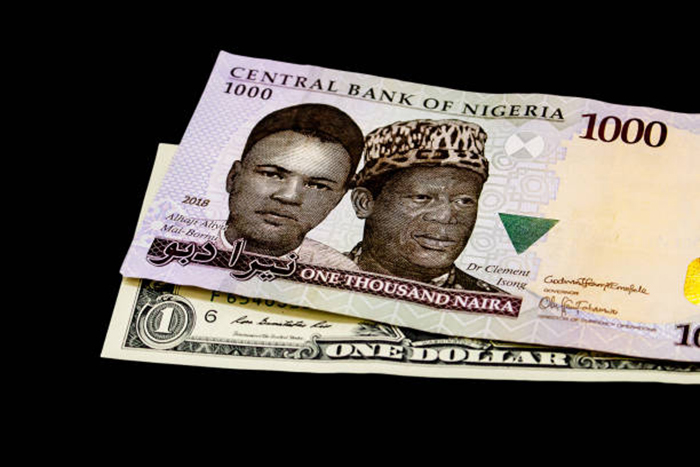The naira made a slight gain at the official market as Nigeria entered a period of national mourning following the death of former President Muhammadu Buhari. According to data from the Central Bank of Nigeria, the local currency appreciated to ₦1,532.34 per US dollar, representing a modest improvement of 77 kobo compared to the previous day’s close. Market observers noted that the appreciation, while marginal, reflects reduced pressure on the foreign exchange market amid lower trading activity during the national mourning period.
The week-long mourning, declared by President Bola Tinubu, has led to subdued operations in key sectors of the economy. Government offices, financial institutions, and various private establishments slowed down activities, and this impacted the volume of transactions across forex windows. Analysts say that the lower demand for the US dollar may have contributed to the naira’s improvement.

At the Investors’ and Exporters’ window, trading was notably quieter, with fewer transactions recorded. Dealers reported a reduction in speculative demand as traders and businesses temporarily paused major forex transactions, opting to wait until the end of the mourning period. This pause allowed a momentary stabilization in exchange rate pressures, as fewer buyers meant reduced competition for available foreign currencies.
The parallel market, often used by individuals and businesses unable to access official sources, remained relatively steady with little movement recorded. The rate hovered around ₦1,550 to the dollar, holding firm due to similarly reduced activity. Market participants said that though demand had decreased, supply remained limited, keeping the rate flat.
Currency traders expressed uncertainty about the sustainability of the naira’s gains. They noted that once normal activities resume and demand picks up, the naira may face renewed depreciation unless supported by increased foreign exchange inflows or new policy interventions by the monetary authorities.
Meanwhile, the death of former President Buhari has drawn widespread reactions across political, economic, and civil society circles. Buhari, who passed away in London at the age of 82, served as Nigeria’s head of state both as a military ruler and later as a democratically elected president. His passing triggered widespread reflection on his leadership and the economic decisions taken during his tenure.
Under Buhari’s administration, the naira faced significant devaluation pressures, with the currency falling from around ₦200 to the dollar in 2015 to over ₦400 by the time he left office in 2023. Analysts often cited tight capital controls, multiple exchange rate windows, and low foreign reserves as contributing factors to the local currency’s challenges during his presidency.
However, some observers argue that Buhari’s government did take steps to encourage domestic production and reduce import dependence, including the establishment of the Anchor Borrowers’ Programme and restrictions on forex access for certain imported goods. These moves, though controversial, were intended to strengthen the local economy and promote industrial growth.
Since President Bola Tinubu assumed office, there has been a shift in the country’s foreign exchange policy direction. The administration floated the naira and eliminated the multiple exchange rate system in an attempt to unify the market and attract foreign investments. While these reforms have been applauded by international observers, they also triggered an initial spike in exchange rates and inflation, increasing the cost of living for many Nigerians.
The modest gain in the naira during the mourning period is being viewed by some analysts as an opportunity for the government to reflect on how best to stabilize the currency in the long term. They emphasize the need for consistent forex supply, investor confidence, and productive sector support to shield the naira from recurrent volatility.
In the days ahead, traders and market watchers will be looking out for any new policy directions from the Central Bank or the federal government aimed at managing currency stability. Many agree that while the current appreciation is welcome, it is unlikely to hold without more comprehensive efforts to improve the country’s trade balance, increase non-oil exports, and boost foreign direct investment.
The emotional atmosphere in the country, combined with the pause in economic activity, has given temporary relief to the forex market. But as Nigeria prepares to return to normal operations after the mourning period, attention will turn once more to the economic fundamentals driving currency performance.
The resilience of the naira remains closely tied to broader fiscal and monetary reforms, oil revenue management, and the ability to diversify the economy away from its historical reliance on petroleum exports. As the Tinubu administration continues to navigate these challenges, the naira’s performance in the coming weeks will be a key indicator of market confidence and economic stability.
Support InfoStride News' Credible Journalism: Only credible journalism can guarantee a fair, accountable and transparent society, including democracy and government. It involves a lot of efforts and money. We need your support. Click here to Donate
